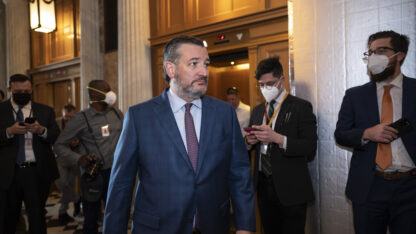Nakita Robinson lives in Adair Park and describes the neighborhood as tight-knit.
“Almost like a ‘Leave It to Beaver’ type of community,” she says. “So much so that we are literally one of those neighborhoods where you can go borrow a cup of sugar.”
But Robinson says that was a very different image portrayed in June when national and international attention was put on the area near the Wendy’s on University Avenue after the shooting death of Rayshard Brooks by Atlanta police.
The shooting happened in the midst of nationwide protests over the police killings of George Floyd and Breonna Taylor. And days after Mayor Keisha Lance Bottoms announced an advisory council would evaluate the city’s use of force policy. During protests, calls around the country reemerged for cities to “defund the police.”
But that’s not what some residents in Atlanta want.
“No one ever said to get rid of the police department or to not give them money,” said Chris Lemons, president of the Peoplestown Neighborhood Association — the neighborhood just east of the Wendy’s.
He says it’s important that Atlanta police officers are paid well. But he also knows there’s money his neighborhood needs for other resources.
An example, he says, is the Rick McDevitt Youth Center in Peoplestown that needs improvement. He says it doesn’t get much support, and he’d like some of the police budget to be used to improve public spaces like this.
Lemons would also like Peoplestown’s community block captain program to get more funding. Block captains do everything from keeping neighbors in the loop of upcoming events to reporting problems they see emerging from loitering to more serious issues.
“We have a volunteer neighbor who steps up and basically lets us know in the neighborhood association what they’re seeing, some of the different things that are going on,” says Lemons.
Lawrence Miller, president of the neighborhood association Adair Park Today, wants community policing that goes beyond ticking off a mandatory box.
“Community policing is that relationship with one and several officers in the neighborhood,” Miller says. “It’s not just calling 911 because there’s an emergency. That officer knows who we are.”
He has an example in his small neighborhood: Officer Flowers of Zone 3.
“She has been nothing short of incredible. If something happens here … we can call Officer Flowers, and she gets back to us as quickly as possible,” he says. “Around the country and for most communities, most cities, towns and villages, it’s not defund as in take all money away. It’s just not,” Miller says. “It’s reimagining what policing is.”
For Adair Park resident Nakita Robinson, that includes more than just stopping crime. It’s also ensuring there’s money in the city budget to make sure everyone has their basic needs met, like housing.
“When it comes to community housing, there’s a shortage in community housing in the state of Georgia,” says Robinson. “There’s not a lot of options for affordable housing.”
For Robinson, she wants policing that creates a safe neighborhood where she rarely has to call 911.
__________________________________________________________________________
Behind The Story
Roxanne Scott produced this story as part of the America Amplified initiative using community engagement to inform and strengthen local, regional and national journalism. America Amplified is a public media initiative funded by the Corporation for Public Broadcasting. WABE is part of the America Amplified network.
This summer, Roxanne Scott, along with senior editor Susanna Capelouto, met virtually with several residents in southwest Atlanta after the shooting death of Rayshard Brooks.
We reached back out to interview a few of those residents to understand some of their concerns around policing.










